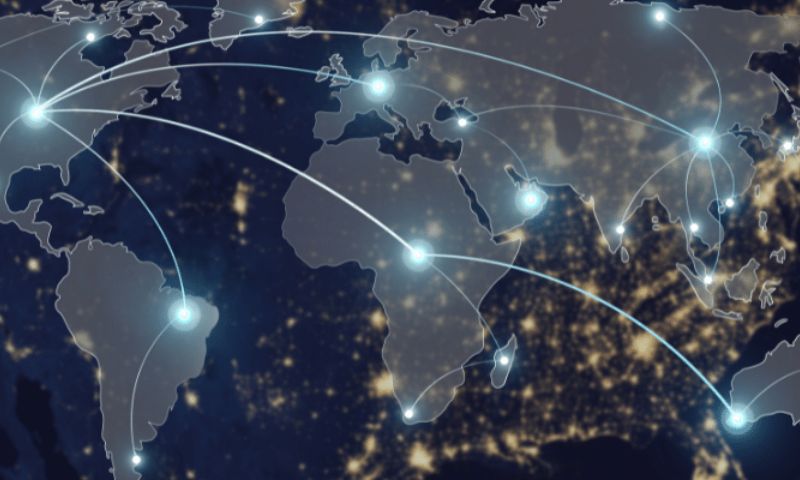BEIJING: Before bedtime, Kashan Khan, a doctoral student from Pakistan studying at Tianjin University in Tianjin Municipality, northern China, used a mobile shopping app to order vegetables and meat, planning to collect the groceries on his way to his dormitory the following day.
“The convenience of online shopping in China is remarkable. With my busy schedule focused on scientific research, I hardly find time to visit malls or markets. I can conveniently purchase everything I need online, including flowers for my girlfriend,” mentioned Khan, who found that online shopping saved him significant time.
China’s digital trade has experienced robust growth in recent years; according to data from the China Academy of Information and Communications Technology, China’s digital economy expanded by USD 4.1 trillion, boasting an average annual compound growth rate of 14.2 percent from 2016 to 2022.
“Having lived in China for seven years, I have witnessed the rapid advancement of e-commerce, mobile payments, and artificial intelligence. I hope that Pakistan can adopt a digital economy model similar to China’s, benefiting the people in my homeland,” Khan expressed to Xinhua.
Khan’s aspiration has become a reality, as the dividends from China’s flourishing digital trade have opened up numerous business opportunities and infused new optimism into countries along the Belt and Road.
The Digital Silk Road was initiated to stay aligned with digital transformation trends. The technology dimension of the Belt and Road Initiative (BRI) extends from the ocean depths to outer space, facilitating the implementation of artificial intelligence, big data applications, and other strategic internet solutions.
By November 2022, China had established the Digital Silk Road cooperation framework with 16 nations and progressed in bilateral Silk Road E-commerce cooperation with 26 countries, including Pakistan.
Samoyed Cloud Technology, a Chinese scientific and technological enterprise specializing in artificial intelligence, big data, mobile internet, and cloud computing, recognized the vast potential in Pakistan’s digital economy market. They launched the e-commerce platform EZTRADER to provide digital trade services to local retailers importing Chinese products.
“Chinese products have gained popularity in Pakistan. Since the launch of the EZTRADER platform in May of this year, it has attracted over 3,000 local retailers, surpassing our expectations,” stated Lin Jianming, chairman and CEO of the company.
Muhammad Rizwan, a 35-year-old mobile phone accessory retailer in Rawalpindi, Pakistan, swiftly joined EZTRADER after its launch.
“E-commerce platforms offer a centralized space for businesses to connect, negotiate, and conduct transactions. We no longer need to seek potential partners or clients individually. We can directly trade with Chinese manufacturers or suppliers, eliminating intermediaries and significantly reducing costs,” Muhammad Rizwan explained.
Alibaba.com, an online business-to-business marketplace under the Alibaba Group for global wholesalers, has extended its foreign trade operations to numerous Belt and Road countries. Pakistan stands out with the highest number of overseas wholesalers on the platform, and the annual growth rate of Pakistani wholesalers exceeded 64 percent during the COVID-19 pandemic.
Aziz-ur-Rehman and Sadia Aziz, a Pakistani couple, faced challenges in the initial two years after establishing their baby clothing brand with their savings of 1.5 million rupees (approximately USD 18,000) in 2018 due to a lack of capital and sales channels.
In 2020, Alibaba.com provided them with comprehensive online business solutions and training sessions. Their company was connected to global customers through the platform, turning their losses into profits.
“Our company’s business revenue has exceeded 3 million rupees, growing by 1 million rupees annually. China has offered us numerous opportunities in the digital economy. We have confidence in the promising future of Pakistan’s digital economy,” asserted Aziz-ur-Rehman. —APP


























